Back to Contents
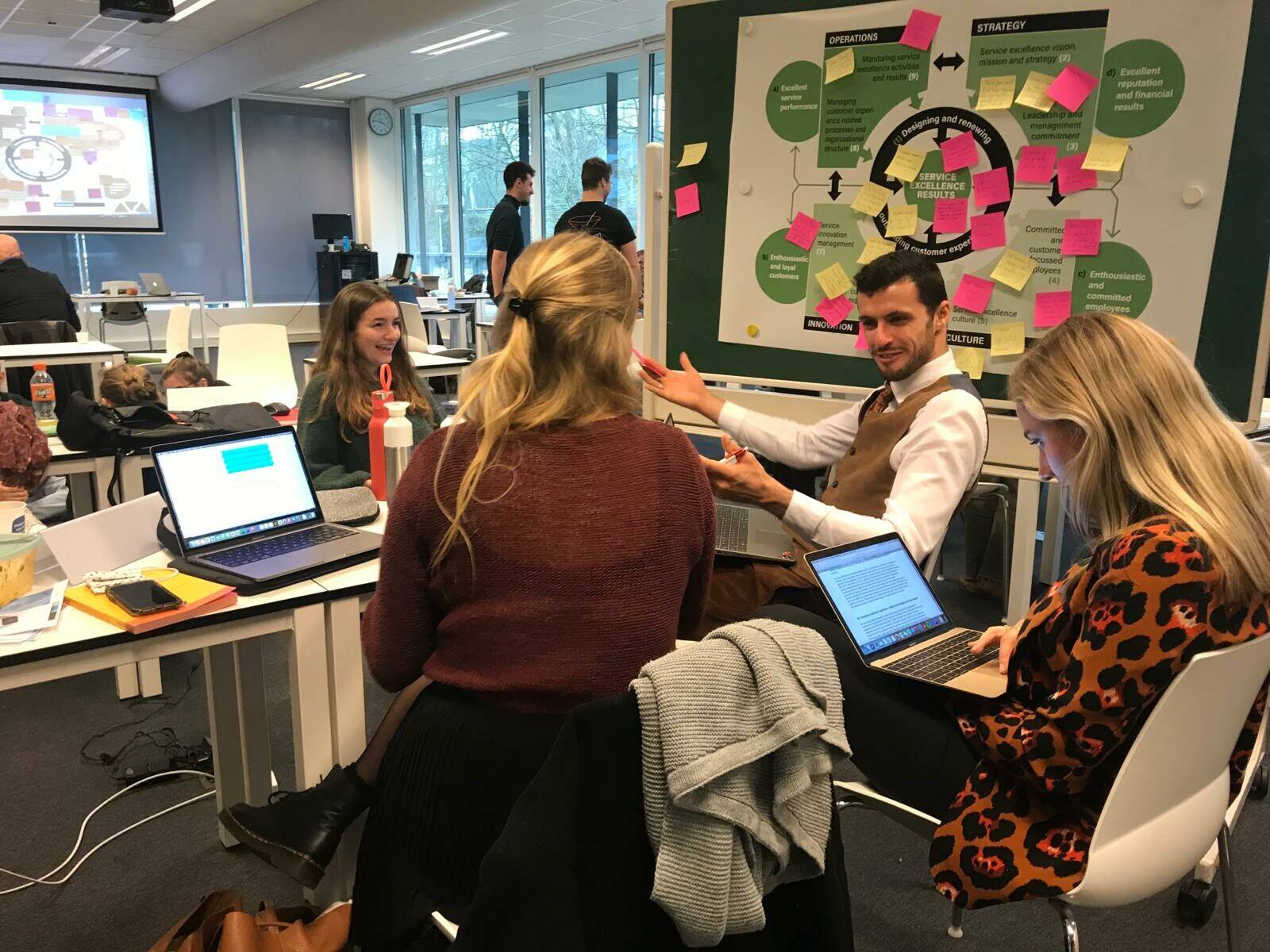
Read Standard
Panel Conclusion 2018
Milestones Completed
The MBA in International Hospitality Management refers to the highest level of service (excellence) associated with hospitality. To deliver professionals who are able to live up to this standard, five Professional Competencies (henceforth referred to as the PCs) are in place, leading students and lecturers the way. The MBA updated the substantiation of its master level based on the current curriculum. Via several sources the MBA is in a continuous dialogue on the relevance and actuality of its PCs and designs the curriculum that enables students to attain the MBA professional competences.
Professional Competencies
Based on the established MBA Professional Competencies translated into the courses learning outcomes/goals, the programme profile is shaped to deliver competent MBA professionals. From the start, the MBA has focussed on delivering graduates who combine excellent business administration (managerial) skills with delivering 'service excellence'.
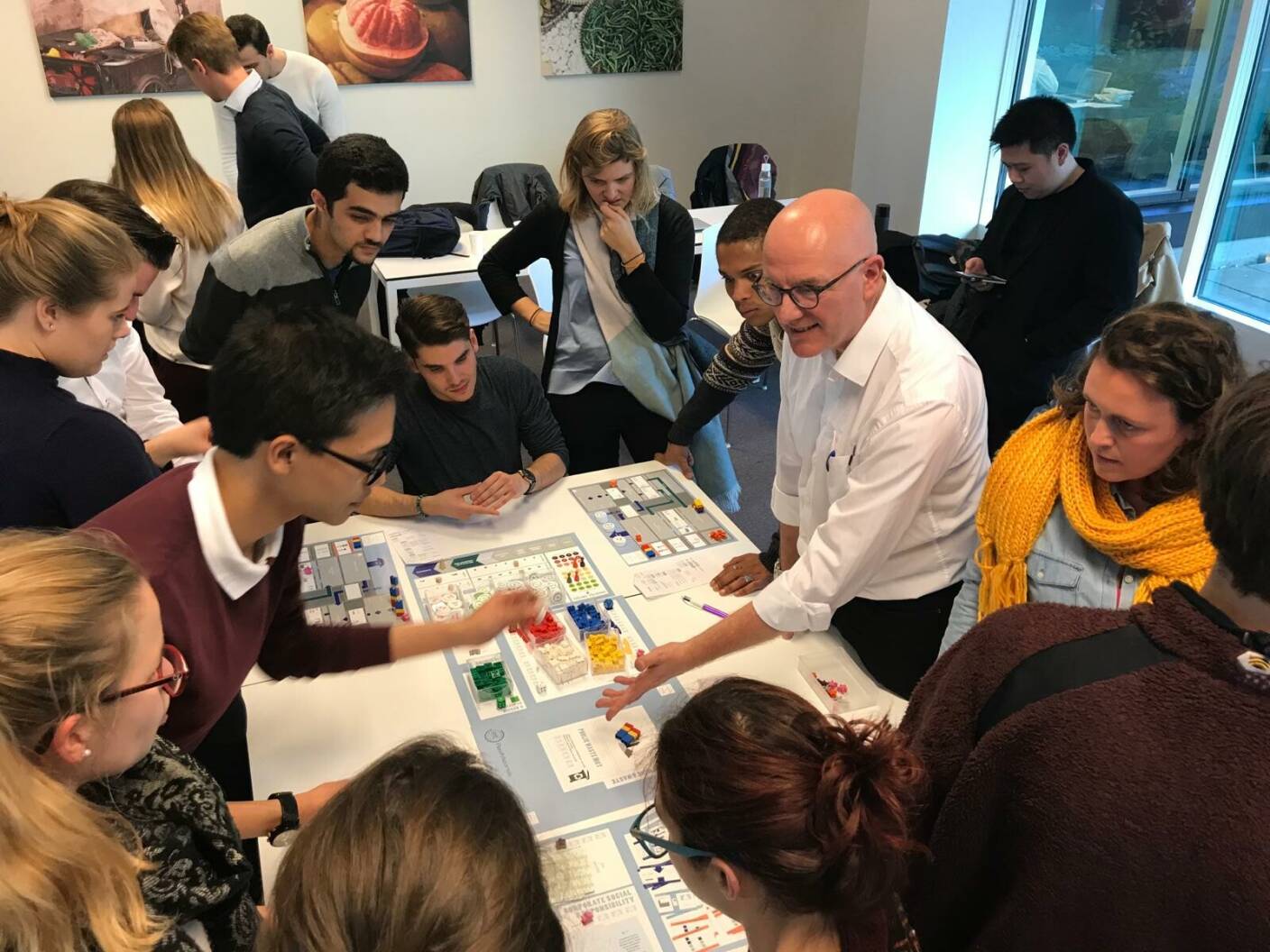
| ||
Strategy Setting up business strategies in a changing international networked environment, wherein hospitality is one of the key distinctive success factors, focusing on new business development (PC2) | Innovation Designing concepts and business models for hospitality and non-hospitality organisations, based on a vision, related to business opportunities and balancing economics with ethics and ecology (PC3) |
Taking the lead in implementing hospitality-driven concepts (service excellence), and realising organisational change processes & projects towards enduring hospitality philosophy as a key differentiator, and core competitive advantage (PC 4) |
| ||
Professional Competencies MBA in International Hospitality Management
The curriculum is designed to take students to master level standards in all professional Competencies as described above. Students are assessed against the Master’s level of the Dublin Descriptors framework as well as the standards of the NLQF framework level 7 and Professional (HBO) Master Standard (to detail, see the PCs MBA Level Mapping). The five Professional Competences (PCs) lead to the profile of the HTH MBA graduate who is ready to engage with the hospitality industry. Our graduates are expected to have strong business administration skills as well as excel at delivering service innovation. This combination of skills and competencies is characteristic for our MBA programme.
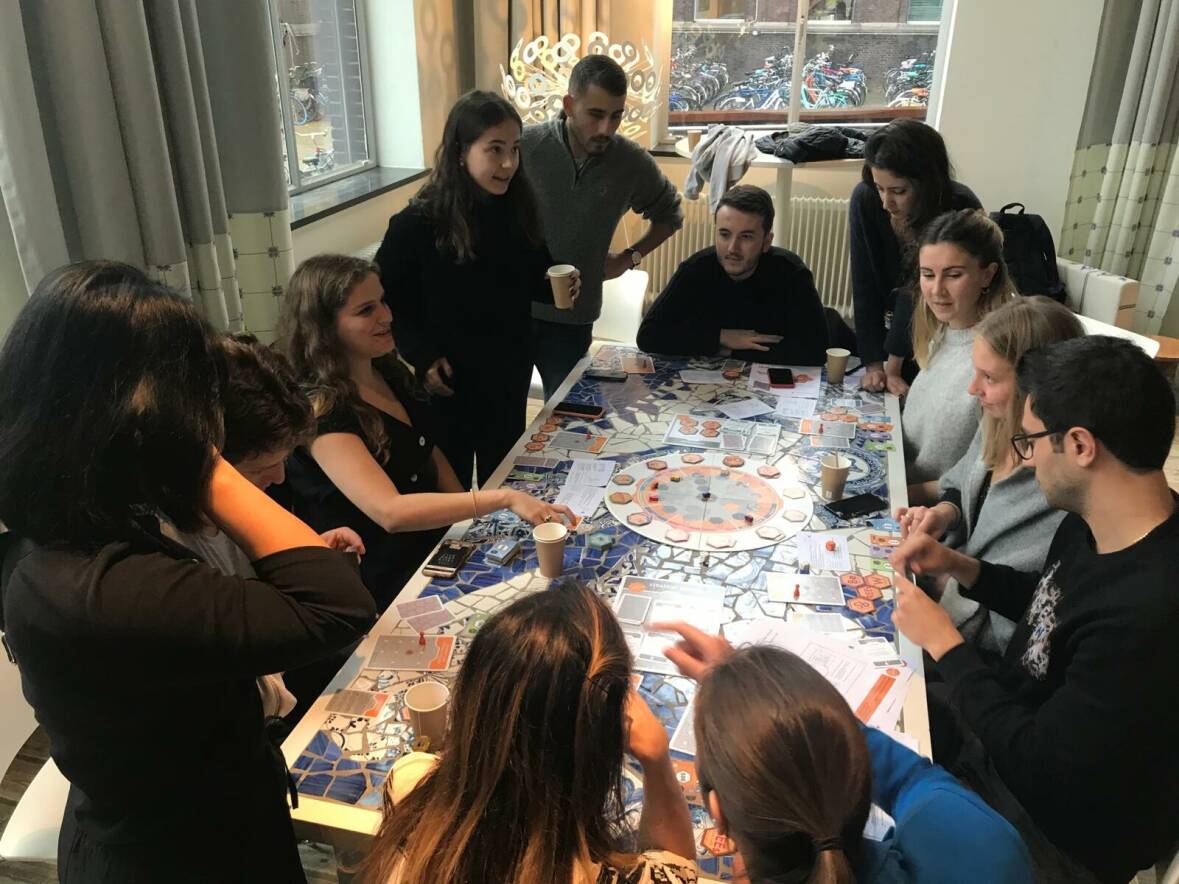
Professional Field
The level and orientation of the programme are geared towards the expectations of the professional field. The HTH International Industry Advisory Board provides HTH with advice regarding trends, needs and challenges in the hospitality and service-related industries. Recently the International Industry Advisory Board (IAB) emphasised the important role of transversal skills with a particular focus on resilience and adaptivity. These skills form an essential part of the MBA Programme, and we are reassured that we are preparing our graduates in the right way.
The MBA uses all other ongoing dialogues with the professional field to remain current. Many industry-related dialogues take place inside the school because of the great number of lecturers from the industry and many students who have been working in the industry before following the MBA. The expert (guest) lecturers ensure we remain engaged in a dialogue with industry in a semi-formal manner.
Furthermore, the contacts with the industry are numerous in the curriculum through case studies for courses and by taking field trips (for details, see the overview of the Curriculum Extra).
Also, the management of the MBA has an active dialogue with the professional field to keep the curriculum and its objectives relevant and up to date for all stakeholders involved. Frequently organising field trips and guest lectures requires close orientation on and contact with the industry and its representatives. Finally, the research centre at HTH provides valuable insight into trends in the industry and how these can be anticipated on in the industry of the future and integrated into our curriculum where applicable.
“Excited to share a glimpse into the valuable skills gained at Hotelschool The Hague. As part of our comprehensive education in the MBA Program, mastering the art of building robust business plans and financial forecasting is integral. Our curriculum equips us with the expertise to craft meticulous business plans, laying the foundation for success in the dynamic hospitality industry. Analyzing market trends and projecting financial outcomes, we're adept at forecasting strategies that drive profitability and sustainable growth. Why it matters: in a competitive business landscape, these skills are game changers. They empower us to make informed decisions, navigate challenges and innovate in an ever-evolving global market.” Rahul Acharya 2024
Name of the MBA programme
One of the recommendations made by the 2018 panel was to reconsider the official name of the MBA as a non-traditional MBA programme. After having received the panel’s conclusions and recommendations, one of the first actions that was taken as a follow-up was starting the discussion about the name of the programme. The conclusion of the discussion among members of the school’s management team and the Board of Directors was to not change the name. A more detailed substantiation can be found here.
Hotelschool The Hague designed the MBA for two target audiences. The first audience is the group of (international) young(er) hospitality bachelor graduates that continue to have the world of hospitality as a preferred industry to work in and are seeking for a programme that looks at hospitality from a broader perspective. The second target audience is a group of professionals that have a hospitality unrelated accredited bachelor's degree but discovered at a later moment (usually between the age of 25-35) that they have a true passion for working in the hospitality industry. In many cases they have already worked for several years in the hospitality industry but do not have an academic educational foundation/degree in hospitality.
It is exactly this strategic positioning that attracts the two mentioned target audiences: a master programme of a renowned hospitality business school with a wider perspective on the phenomenon of hospitality giving them professional opportunities in both the traditional hospitality industry and within organisations that have an excellent service offering as a true differentiator.

Back to top
Back to Contents

The MBA in International Hospitality Management refers to the highest level of service (excellence) associated with hospitality. To deliver professionals who are able to live up to this standard, five Professional Competencies (henceforth referred to as the PCs) are in place, leading students and lecturers the way. The MBA updated the substantiation of its master level based on the current curriculum. Via several sources the MBA is in a continuous dialogue on the relevance and actuality of its PCs and designs the curriculum that enables students to attain the MBA professional competences.
Milestones Completed
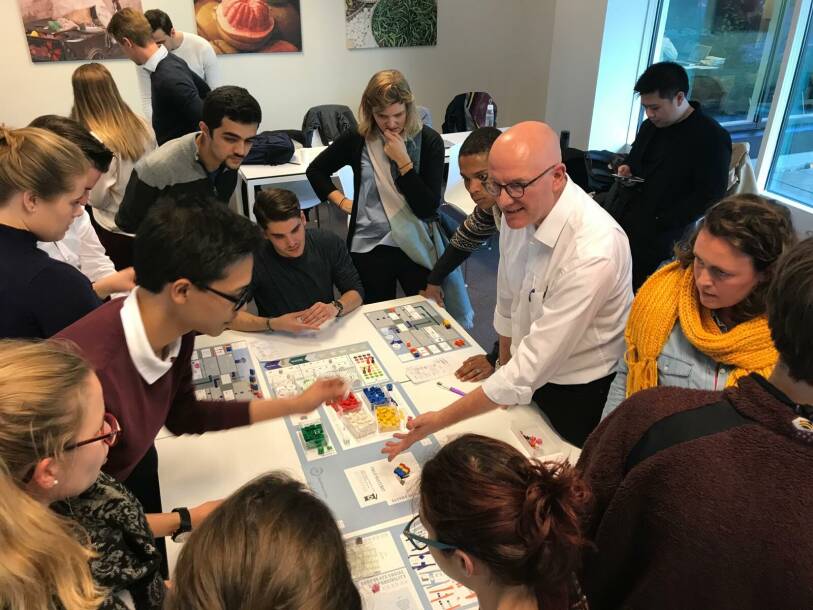
Professional Competencies
Based on the established MBA Professional Competencies translated into the courses learning outcomes/goals, the programme profile is shaped to deliver competent MBA professionals. From the start, the MBA has focussed on delivering graduates who combine excellent business administration (managerial) skills with delivering 'service excellence'.
The curriculum is designed to take students to master level standards in all professional Competencies as described above. Students are assessed against the Master’s level of the Dublin Descriptors framework as well as the standards of the NLQF framework level 7 and Professional (HBO) Master Standard (to detail, see the PCs MBA Level Mapping). The five Professional Competences (PCs) lead to the profile of the HTH MBA graduate who is ready to engage with the hospitality industry. Our graduates are expected to have strong business administration skills as well as excel at delivering service innovation. This combination of skills and competencies is characteristic for our MBA programme.
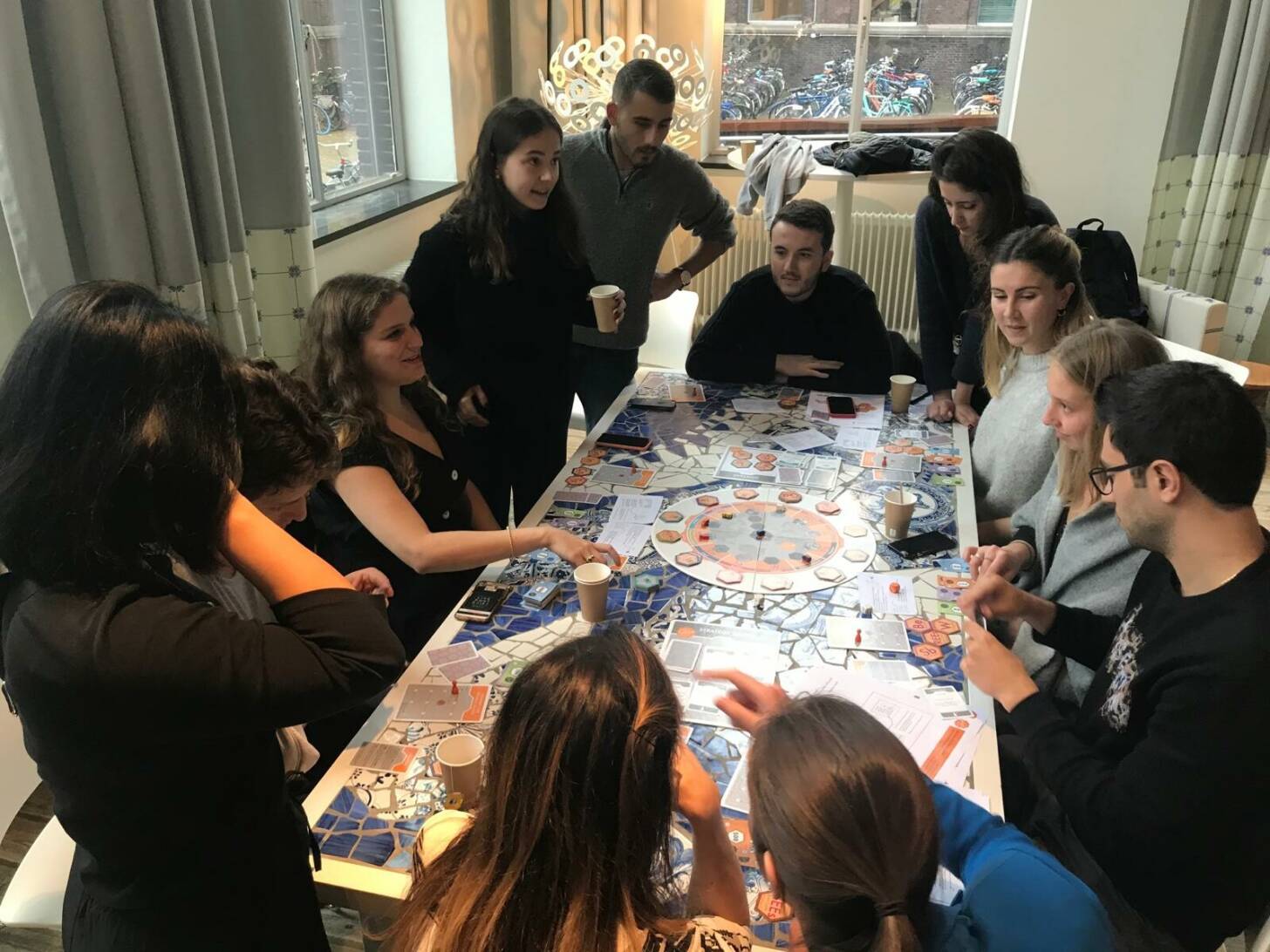
Professional Field
The level and orientation of the programme are geared towards the expectations of the professional field. The HTH International Industry Advisory Board provides HTH with advice regarding trends, needs and challenges in the hospitality and service-related industries. Recently the International Industry Advisory Board (IAB) emphasised the important role of transversal skills with a particular focus on resilience and adaptivity. These skills form an essential part of the MBA Programme, and we are reassured that we are preparing our graduates in the right way.
The MBA uses all other ongoing dialogues with the professional field to remain current. Many industry-related dialogues take place inside the school because of the great number of lecturers from the industry and many students who have been working in the industry before following the MBA. The expert (guest) lecturers ensure we remain engaged in a dialogue with industry in a semi-formal manner.
Furthermore, the contacts with the industry are numerous in the curriculum through case studies for courses and by taking field trips (for details, see the overview of the Curriculum Extra).
Also, the management of the MBA has an active dialogue with the professional field to keep the curriculum and its objectives relevant and up to date for all stakeholders involved. Frequently organising field trips and guest lectures requires close orientation on and contact with the industry and its representatives. Finally, the research centre at HTH provides valuable insight into trends in the industry and how these can be anticipated on in the industry of the future and integrated into our curriculum where applicable.
“Excited to share a glimpse into the valuable skills gained at Hotelschool The Hague. As part of our comprehensive education in the MBA Program, mastering the art of building robust business plans and financial forecasting is integral. Our curriculum equips us with the expertise to craft meticulous business plans, laying the foundation for success in the dynamic hospitality industry. Analyzing market trends and projecting financial outcomes, we're adept at forecasting strategies that drive profitability and sustainable growth. Why it matters: in a competitive business landscape, these skills are game changers. They empower us to make informed decisions, navigate challenges and innovate in an ever-evolving global market.” Rahul Acharya 2024
Name of the MBA programme
One of the recommendations made by the 2018 panel was to reconsider the official name of the MBA as a non-traditional MBA programme. After having received the panel’s conclusions and recommendations, one of the first actions that was taken as a follow-up was starting the discussion about the name of the programme. The conclusion of the discussion among members of the school’s management team and the Board of Directors was to not change the name. A more detailed substantiation can be found here.
Hotelschool The Hague designed the MBA for two target audiences. The first audience is the group of (international) young(er) hospitality bachelor graduates that continue to have the world of hospitality as a preferred industry to work in and are seeking for a programme that looks at hospitality from a broader perspective. The second target audience is a group of professionals that have a hospitality unrelated accredited bachelor's degree but discovered at a later moment (usually between the age of 25-35) that they have a true passion for working in the hospitality industry. In many cases they have already worked for several years in the hospitality industry but do not have an academic educational foundation/degree in hospitality.
It is exactly this strategic positioning that attracts the two mentioned target audiences: a master programme of a renowned hospitality business school with a wider perspective on the phenomenon of hospitality giving them professional opportunities in both the traditional hospitality industry and within organisations that have an excellent service offering as a true differentiator.
Scroll
| ||
Strategy Setting up business strategies in a changing international networked environment, wherein hospitality is one of the key distinctive success factors, focusing on new business development (PC2) | Innovation Designing concepts and business models for hospitality and non-hospitality organisations, based on a vision, related to business opportunities and balancing economics with ethics and ecology (PC3) |
Taking the lead in implementing hospitality-driven concepts (service excellence), and realising organisational change processes & projects towards enduring hospitality philosophy as a key differentiator, and core competitive advantage (PC 4) |
| ||
Professional Competencies MBA in International Hospitality Management
Panel Conclusion 2018
Standard 1: Intended Learning Outcomes
The intended learning outcomes of the master programme meet the requirements of the Dublin descriptors at master level. The focus is on innovation, strategy and change. The name of the programme, in combination with the school's name, suggests that the programme focuses on hospitality in the hotel industry, but the scope is wider than that: it is on the design, delivery and management of hospitality as the highest level of service. A different name may express this more clearly.
The intended learning outcomes are validated by the industry through the extensive links with national and international partners...They are well geared to the expectations of the professional field, the discipline, and international requirements. On the basis of the high ambition level and consistency of the intended learning outcomes the panel assesses this standard as good. The panel thinks that, given the high ambitions, verifiable objectives would be helpful to achieve them.

Back to top
